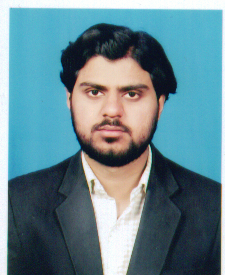Dr. Khurram Shahzad Ayub
Specialization : Environmental Sciences and Engineering
Email : engr.khurram@uog.edu.pk
Office Number : +(92) 92532260000
Dr. Khurram Shahzad Ayub is a distinguished academician and a leading figure in the Department of Chemical Engineering at the University of Gujrat (UOG). With a career spanning over a decade, He has been instrumental in shaping the academic landscape and contributing significantly to the department's growth and development. Dr. Khurram Shahzad Ayub completed his Bachelor of Chemical Engineering from NFC Institute of Engineering and Technology (NFC-IET) affiliated with Bahauddin Zakariya University (BZU), Multan. He continued his academic journey by earning a Master's degree in Chemical Engineering from UOG, followed by a Ph.D. in Environmental Sciences and Engineering from East China University of Science and Technology (ECUST), Shanghai, China. As a pioneer in the Department of Chemical Engineering, Dr. Khurram Shahzad Ayub played a pivotal role in the establishment and enhancement of departmental laboratories, ensuring state-of-the-art facilities for students and faculty. His visionary leadership extended to administrative processes, where he introduced innovative strategies to streamline operations and enhance overall efficiency. Dr. Khurram Shahzad Ayub is renowned for his dedication to academic excellence, particularly in his role as the Incharge for industrial and internship programs. Under his guidance, students have gained valuable hands-on experience, bridging the gap between classroom learning and real-world application. His commitment to student development is further exemplified by his extended tenure as the coordinator for the Chemical Students Society at UOG. In this capacity, he organized impactful events, workshops, and seminars, fostering a dynamic and collaborative learning environment. A determined in the field of Chemical Engineering, Dr. Khurram Shahzad Ayub continues to inspire and mentor the next generation of engineers. His contributions to research, academia, and student engagement make him an integral part of the UOG community, embodying the university's commitment to excellence in education and holistic development.
-
With a primary focus on air pollution mitigation, Dr. Khurram Shahzad Ayub's research delves into the degradation of volatile organic compounds (VOCs) through plasma catalysis technology. This work addresses the critical need for sustainable solutions to combat air pollution, particularly targeting pollutants like toluene, a representative VOC with widespread industrial use and significant environmental implications. Ongoing research initiatives involve the synthesis and application of Co - Cu and ferrite catalysts to enhance the efficiency of toluene degradation through plasma-catalysis while minimizing the generation of hazardous intermediates. The current phase explores the development of Co - Cu catalysts with TiO2 support, with promising results highlighting the equimolar Co - Cu/TiO2 catalyst as an optimal performer. In a parallel research strand, Dr. Khurram Shahzad Ayub addresses the limitations of non-thermal plasma (NTP) technology for toluene treatment by integrating it with ferrite-based catalysts. Notably, the Co - Fe2O4 catalyst has demonstrated remarkable efficiency, surpassing NTP-alone by 66.66%, underlining the potential of combining NTP with catalytic systems for sustainable VOC conversion. Future research endeavors aim to extend the exploration of catalyst modifications, optimize reactor conditions, and submit proposals for research grants. These initiatives are geared towards contributing to scalable and eco-friendly technologies for VOC removal, aligning research outcomes with practical applications to address pressing environmental challenges. Dr. Khurram Shahzad Ayub's commitment lies in advancing the understanding of catalytic degradation of VOCs, with a broader goal of developing sustainable solutions to mitigate air pollution and associated health risks. His dedication transcends the laboratory, seeking support for practical applications that positively impact environmental sustainability and public health.
?Engr. Khurram Shahzad Ayub? - ?Google Scholar?
https://orcid.org/0000-0001-5174-2424
